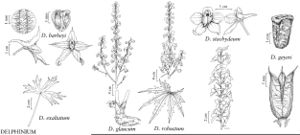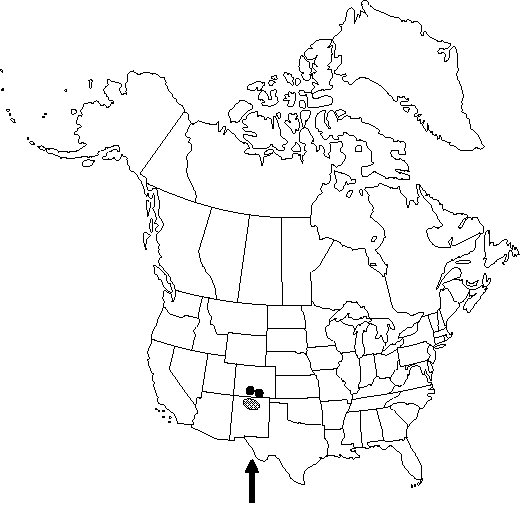Delphinium robustum
Bull. Torrey Bot. Club 28: 276. 1901.
Stems 100-200 (-250) cm; base sometimes reddish, glabrous, glaucous. Leaves cauline, 12-22, absent from proximal 1/5 of stem at anthesis; petiole 5-13 cm. Leaf-blade round to pentagonal, 7-12 × 10-20 cm, nearly glabrous; ultimate lobes 5-15, width 6-30 mm, tips gradually tapered to mucronate apex; midcauline leaf lobes more than 3 times longer than wide. Inflorescences 40-90 (-180) -flowered; pedicel 0.5-2 cm, puberulent; bracteoles 4-6 mm from flowers, green to purple, linear, 5-8 mm, puberulent. Flowers: sepals bluish purple to pale lavender, nearly glabrous, lateral sepals ± forward pointing, 9-14 × 4-6 mm, spurs slightly decurved, 30-45° above horizontal, dark blue, 10-13 mm; lower petal blades ± covering stamens, 5-7 mm, clefts 2-3 mm; hairs centered, mostly on inner lobes near base of cleft, yellow to white. Fruits 13-18 mm, 3-4 times longer than wide, puberulent. Seeds wing-margined; seed-coat cells elongate, surfaces smooth.
Phenology: Flowering summer.
Habitat: Riparian woodlands, subalpine meadows
Elevation: 2200-3000 m
Discussion
Of conservation concern.
Delphinium robustum is the representative of the southern Cordilleran complex from the Jemez, San Antonio, San Juan, San Pedro, and Sangre de Cristo mountains. Hybrids are known with D. sapellonis.
Selected References
None.

